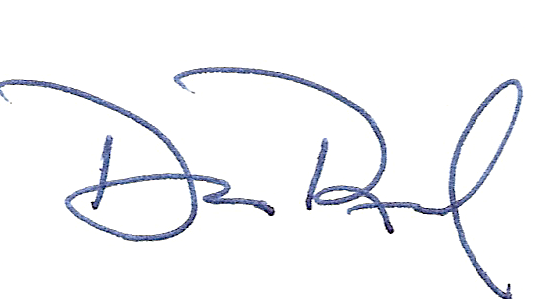
“Our experience shows that most RV dealerships’ shop productivity is well below 100%. If you are one of them then ask yourself–Why? After all, if you are paying a Technician to work 40 hours then why shouldn’t you be billing 40 hours on the work orders? That’s 100%.
That’s hard enough, but is it possible to achieve 125% productivity in today’s marketplace? The answer is “YES!”
— Don Reed, CEO
DealerPRO Training
What ‘Productivity’ Means …
Before we tell you how to reach 100% Productivity, and more, let’s first define what is “shop productivity.”
It is calculated by simply dividing the number of hours billed to the customer on your work orders (Retail, Warranty & Internal) by the number of clock hours worked by your Technicians. For example, if you have 4 Technicians who are on the clock for 40 hours per week you have 160 available hours to bill. If the total hours billed on your work orders equaled, say 120 hours then your shop productivity would be 120 hours divided by 160 hours or 75%.
Our experience shows that most RV dealerships’ shop productivity is well below 100%. But what if you paid the Technician for 50 hours billed out on the work orders and he still worked only 40 clock hours, which results in the Technician achieving 125% productivity. Is this possible in today’s marketplace? The answer is “YES,” and here’s how you can make it happen.
The Importance of Accountability
Let’s explore some of the reasons why most RV dealerships are not exceeding 100% shop productivity. It all starts with accountability. Do you have specific productivity goals set for each month, week and day for the Service Manager, Service Advisors and Technicians?
If so, these productivity goals must be measured daily and the results must be shared with all. Here is a simple example of what I’m talking about.
Let’s assume that the Service Department is currently running at 60% shop productivity with 6 Technicians, 2 Service Advisors and 1 Service Manager. We have decided that for the next month we are setting a goal of 75% shop productivity. The Technicians must then produce an average of 30 billable hours per week (40 clock hours times 75%=30 hours) or 6 hours per work day.
Each Service Advisor is then responsible for selling 18 hours per day. (6 hours per Tech per day times 6 Techs = 36 hours per day divided by 2 Advisors=18 hours per day).
The Service Manager is then responsible for measuring the performance of each Technician and Service Advisor daily and reviewing the results with them daily as to how they are performing in relation to their respective goals. Anyone not meeting their goals must have explanations why and the Service Manager must work with them to determine the cause of their shortage and how they are going to correct it. (Accountability)
Easier Said Than Done
This scenario sounds quite simple doesn’t it? Well, it is simple! However, getting your Technicians, Service Advisors and Service Manager to stay focused daily on their goals can be very difficult. In my view, they are asking themselves “what’s in this for me?” In other words, why should they care about shop productivity since it has no impact on their compensation? In their view, the Dealer is the only one who benefits from increased productivity. If that is the case, then why not provide all of them with a performance incentive?
For Technicians it is called “flat rate” compensation versus salary or hourly clock wages. For Service Advisors it’s called “commissions” for parts and labor sales and for the Service Manager it’s called “bonus” for reaching your goals. Now if everyone who is responsible for productivity is compensated based on productivity, accountability becomes inherent and your sales and net profit will soar! Now, once you achieve 75% shop productivity you must raise your goal and continue doing so until you exceed 100%.
Setting Priorities
Another reason why most RV dealerships are not exceeding 100% shop productivity is what I refer to as the priority of service. There are basically three types or sources for work orders. There are:
1.) Internals
2.) Warranty
3.) Retail.
I have listed them in the order of priority that I find in most RV dealerships. If “positive cash flow” in your service department is important to you then you might want to consider reversing the priorities since Retail sales are immediate cash flow, Warranty sales are cash flow in 30-60-90 days depending on the efficiency of your warranty administrator and manufacturer, while Internal sales simply moves the dealer’s money from one pocket to another. The Internal sales actually results in negative cash flow since the dealer has to pay for the parts or accessories as well as the Technician’s wages on the work order, which all comes out of cash.
Now, don’t misunderstand my point by thinking that Internals are not important. As an ex-dealer I know how important it is to support the sales department in prepping new units and reconditioning the used ones. The point that I’m trying to make is that a successful RV dealer must be able to handle all three sources of service sales on a daily basis.
It does not make good sense to decide that your service department will only service Retail and Warranty customers this week and no Internals will be allowed. This would create havoc with your sales department, right?
On the other hand, it does not make good sense to decide that your service department will only service Internals this week and no Retail or Warranty work will be allowed. This would most definitely create havoc with your Service Manager and Service Advisors. The solution to this dilemma is called scheduling.
Scheduling Positive Cash Flow
Do you schedule your new units for prepping after they are sold or do you prep them as they arrive into your inventory? Do you recondition your used units after they are sold or do you recondition them as they come into your inventory?
Do you shut down all Retail and Warranty work to accommodate an off-site sale or do you prepare in advance for the off-site sale and consider having your service department open additional hours in the evening and/or weekends? Before you start complaining about paying overtime wages, please consider the additional sales and gross profit that will be generated from extended hours. In other words, focus on the profits you can earn versus the costs involved.
Speed Up Special Orders
Do you schedule the installation of special order parts and accessories when they arrive or do you wait until you have an opening sometime down the road? Do you have a process in place for special order parts? Are the Service Advisors notified either electronically or in writing when the parts or accessories arrive? Are the customers then notified immediately by phone, electronically and/or in writing that their parts or accessories have arrived and when they should bring their unit back for service?
Do special order parts work orders have a priority over other work orders? Does your parts department exhaust every source possible for the special order parts or do they just place an order with the manufacturer? Does your parts department utilize multiple aftermarket parts and accessories sources for maximum availability? Do your parts personnel understand that their primary mission each day is to get the parts in the hands of the Technicians as fast as possible?
Use The Right Tools
Have you performed an assessment of your tools and equipment lately? By assessment, I mean the condition of the tools and equipment to determine if there are any repairs or servicing needed. Also, are there any tools or equipment that your Technicians need that they don’t currently have? Do your Technicians have a sufficient inventory of their own tools to perform their work in an expeditious manner? Is there a tool incentive plan in place for your Technicians that encourages them to buy more tools as they reach their goals?
Meet & Listen
Another way of increasing shop productivity is through shop meetings. These meetings should be held after normal work hours and should include the Service Manger, Service Advisors, Technicians, Parts Manager, Parts Counter people, Warranty Administrator and hopefully the Dealer. A few pizzas to snack on might be nice but stay away from alcohol. Everything we have reviewed thus far in this article would be appropriate content for a productive shop meeting. Remember, if you are the one conducting the meeting you must be a good listener.
You have two ears and one mouth so use them proportionately! No negativity-be positive! You don’t have problems but you do have opportunities for improvement.
If you really want to increase shop productivity just focus on it every day. Measure it, evaluate it, share the results and hold your people accountable.
“People are very open-minded about new things – as long as they’re exactly like the old ones.” -Charles Kettering
Call me toll free at 1-888-553-0100
Or email dreed@dealerprotraining.com.

Don Reed
CEO–DealerPRO Training
